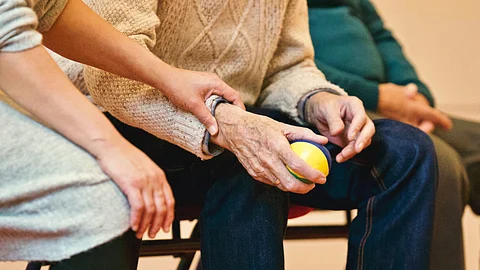
- NEWS
- the EDIT
- COMMENTARY
- BUSINESS
- LIFE
- SHOW
- ACTION
- GLOBAL GOALS
- SNAPS
- DYARYO TIRADA
- MORE

The average life expectancy of Filipinos declined from 73 to 71 years, data from World Bank showed.
According to the World Bank, the average life expectancy of Filipino women is at 76 years, and men at 67 years.
The Philippines stood at ranks 133 and 144 among the 200 countries worldwide with the average life expectancy.
The Philippine Statistics Authority said the average life expectancy is 71 years for Filipino men and 78 years for Filipino women this year.
Life expectancy in other countries
The World Bank said Hong Kong and Japan have the highest average life expectancy at 85 years.
Singapore recorded 84, Australia 83, and New Zealand 82 years.
However, some countries also have an average life expectancy of only 50 and above. These are South Sudan with 58, Nigeria with 55, and the Central African Republic with 54 years.
Factors affecting life expectancy
Studies show that genetics, healthy lifestyle, objective well-being, and Covid-19 may have an impact on life expectancy and quality of life.
A study published in the National Library of Medicine suggests genetics only account for approximately 25 percent of an individual's chance of surviving to age 85.
A separate BMJ study pointed out that men and women who lead healthy lives — as measured by their food, level of mental and physical activity, and intake of alcohol and tobacco — should expect to live longer than those who don't.
People with good lifestyles also spent a greater percentage of their remaining years free from Alzheimer's disease.
Another study published in JAMA Network Open said individuals who demonstrated subjective well-being (characterized by the enjoyment of life and an absence of depressive symptoms) were more likely to live longer lives free from chronic illness and impairment.
Meanwhile, a study undertaken by the University of Oxford and the Max Planck Institute for Demographic Research found that the mortality shock brought on by the Covid epidemic in 2021 did not result in a recovery of the world's life expectancy.
Women outlive men due to lifestyle
PRB, a nonpartisan research organization, said women live longer than men due to lifestyle differences.
The research firm, citing several studies, mentioned that men are more likely than women to smoke.
Men likewise have the tendency to take "greater risks," which increases their risk of suffering a life-threatening injury. The longer life expectancy of women is also explained by biological variations.
PRB added that estrogen in women helps lower blood levels of dangerous cholesterol, hence preventing illnesses like heart disease.
Additionally, it's believed that women's immune systems are "better" than men's.
Researchers have shown that the wealthiest and most educated people have the smallest gender disparity in life expectancy, which suggests that increasing access to good health care, a healthy diet, and other benefits can help men live longer than women.
